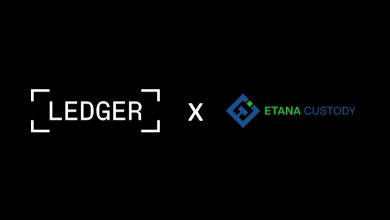Volavia Launches First Blockchain-Based Platform for Private Air Travel

Volavia integrates with existing travel platforms, adding smart contracts to manage booking, itineraries and payments for the private aviation industry
Private aviation technology company Volavia announced the launch of the first blockchain-based platform for private air travel. Volavia uses smart contracts to manage bookings, itineraries, and payment details on the blockchain, providing full transparency to all parties involved in booking private air charter flights including passengers, brokers, and aircraft operators.
Backed by a seasoned team of aviation and travel professionals, technologists, and blockchain experts, Volavia’s smart contracts replace the complex trail of banking, finance, contract, and communications applications currently required to fulfill private jet charter orders.
Volavia will not disintermediate existing search, availability and booking service providers. Rather, it will provide a decentralised, permissionless private aviation “clearing house’’ service on a fully-integrated platform to provide secure, frictionless, end-to-end transactions, mitigating risk and optimising efficiencies.
“The private aviation industry faces numerous challenges, including transaction management, payment restrictions, foreign exchange exposure, and increased cyber crime in the form of interception of payments and sensitive customer data,” said Richard Mumford, Chairman of BACA, the Air Charter Association. “Volavia solves these key industry problems by providing transparency through a decentralized blockchain platform.”
“The over $20 billion private aviation industry lacks adequate booking and payments processes and safeguards, instead relying on legacy systems that are inefficient and vulnerable to attack,” said Volavia co-founder Graham York. “The industry has seen waves of funding for platforms that allow users to search and book travel, but nothing that addresses total security or transparency for payments and client data. Volavia does so, while also being able to seamlessly integrate with existing booking platforms.”
Volavia’s cryptographic technology secures the surface payment processing transaction layer, preventing hackers from using man-in-the-middle attacks to access sensitive client data or to intercept and divert payments.
Volavia’s solution enables more than 21,000 private jet operators and 750 private jet companies worldwide to overcome ongoing industry challenges that include complex and restrictive payment processes; cross-border and foreign exchange exposure. Volavia will integrate both fiat currencies and cryptocurrencies, simplifying payment processes.
Focusing first on private aviation, Volavia has plans to extend into superyachts and other aspects of exclusive travel management.
Volavia is backed by a two-tier security token protocol. The first token, VOL, will allow key contributors and industry players to first join a limited community and this will be followed by AERU, a “stablecoin” that will be used for flight payment transactions passing through Volavia. The two tokens will be linked by advanced staking and reputation protocols.





